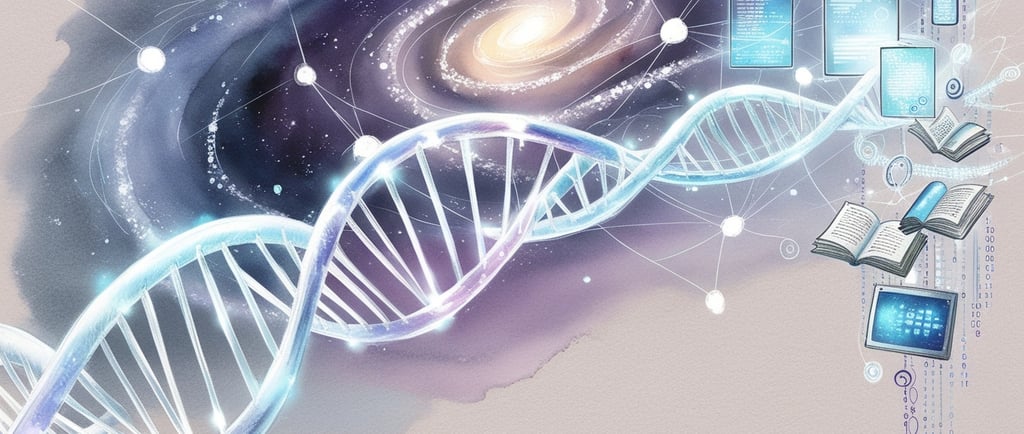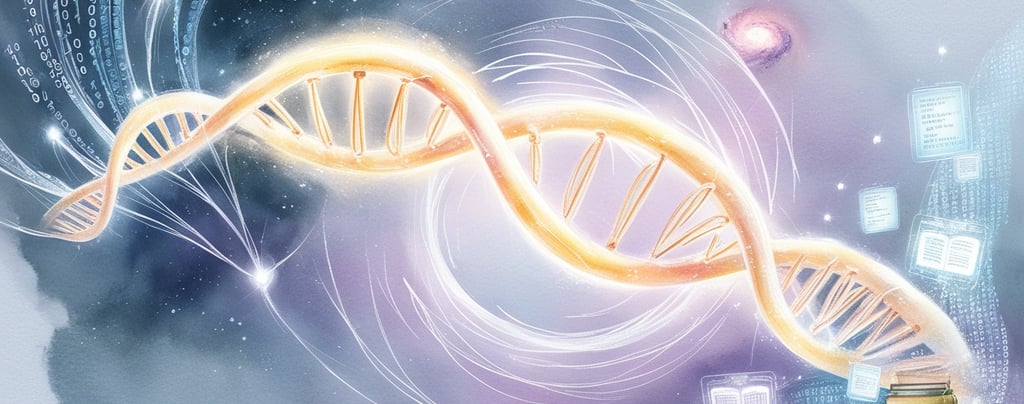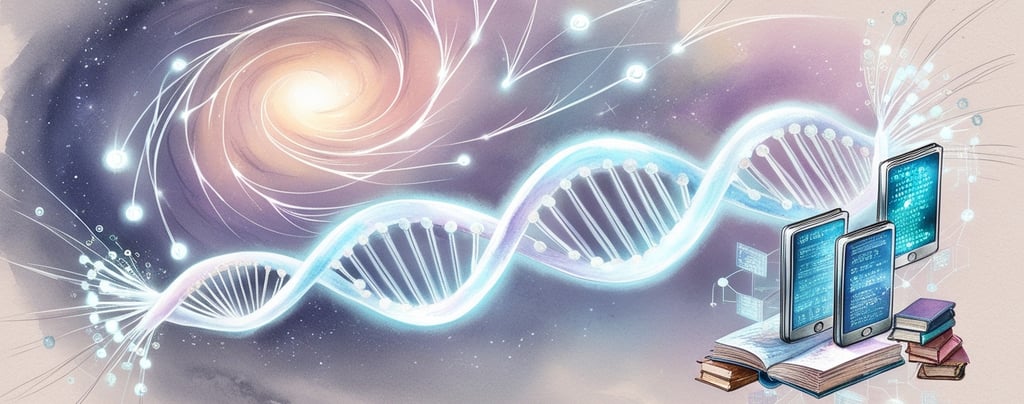DNA Storage: The Future of Data Storage
Could DNA become humanity's ultimate storage solution? Scientists reveal that just 1 gram of DNA can hold 215 petabytes of data. Explore the implications for knowledge, immortality, and the future of information as we delve into this groundbreaking scientific advancement. Can we make DNA storage?
Black Heart
4/11/20253 min read


What If DNA Could Store All Human Knowledge?
Introduction
I’ve always thought DNA is one of the most fascinating codes in the universe. It holds the instructions to build you and me, but what if it could also hold everything we’ve ever learned as humans? Imagine replacing stacks of hard drives, libraries, and cloud servers with just a tiny strand of DNA. Could our genetic code become the ultimate storage device?
How Could DNA Store Knowledge?
It sounds wild, but scientists are already experimenting with it. DNA is basically a biological hard drive made up of four chemical bases: A, T, C, and G. By translating digital data (1s and 0s) into sequences of these bases, researchers can literally “write” information into synthetic DNA.
I guess the crazy part is how efficient it is:
1 gram of DNA can hold 215 petabytes of data. That’s more than all of YouTube.
DNA can last thousands of years if stored properly.
It’s way smaller and more stable than current tech like SSDs or magnetic tape.
So, in theory, we could fit the entire knowledge of humanity, books, videos, music, even memes, inside a container the size of a sugar cube.
What If We Could Access It Like a Library?
Imagine walking into a lab instead of a library. Instead of checking out a book, you “sequence” a strand of DNA and pull up the knowledge instantly. We could store history, science, culture, and personal memories in something that might outlast every hard drive ever built.
It makes me wonder: would forgetting even be possible anymore?


Could We Write DNA Into Ourselves?
Here’s where it gets even weirder. If DNA can store data, could we one day encode human knowledge directly into our genes? Maybe future generations could inherit entire libraries at birth. Babies wouldn’t just be born, they’d arrive preloaded with human history, language, and skills.
It sounds like sci-fi, but I think it raises some mind-bending possibilities:
Could we skip traditional schooling?
Would everyone become a “genius” from day one?
What would happen to individuality if everyone had the same base of knowledge?
The Pros of DNA Knowledge Storage
Durability: DNA lasts longer than current storage.
Space-saving: The entire internet could fit in your pocket.
Future-proof: Life will always understand DNA, even if tech changes.
Preservation: A backup of civilization in case of disaster.
The Cons of DNA Knowledge Storage
Ethical concerns: Should we tamper with DNA to store non-biological info?
Access inequality: Who controls the library of DNA knowledge?
Security risks: Imagine hackers rewriting history in your genes.
Overload: Could our brains even handle inherited data?
What If All Human Knowledge Fit on One Strand?
If we really did condense everything into DNA, knowledge could become almost immortal. Even if our digital systems collapse, DNA could survive as the ultimate time capsule. Future civilizations, or even aliens, could decode it to understand who we were.
It would be the closest thing to humanity leaving a permanent mark on the universe.


Key Points
DNA can store massive amounts of data, far beyond current tech.
It could preserve all human knowledge for thousands of years.
Encoding info into human DNA raises ethical and philosophical questions.
The benefits are mind-blowing, but so are the risks.
Humanity’s entire history might one day fit into something microscopic.
Final Thoughts
I think the idea of DNA as a storage system is both inspiring and terrifying. On one hand, it’s comforting to imagine our knowledge never being lost. On the other hand, I guess part of me wonders if having everything forever takes away the beauty of forgetting.
By 2025 and beyond, scientists are making progress on DNA data storage, but whether it becomes a library, a time capsule, or even a part of ourselves is still up for debate.
Maybe the real question isn’t if DNA can hold all our knowledge, but what we should choose to put in it?
🔗 Related Articles from EdgyThoughts.com
🌐 External Resource
Learn more here: Wikipedia – DNA Digital Data Storage